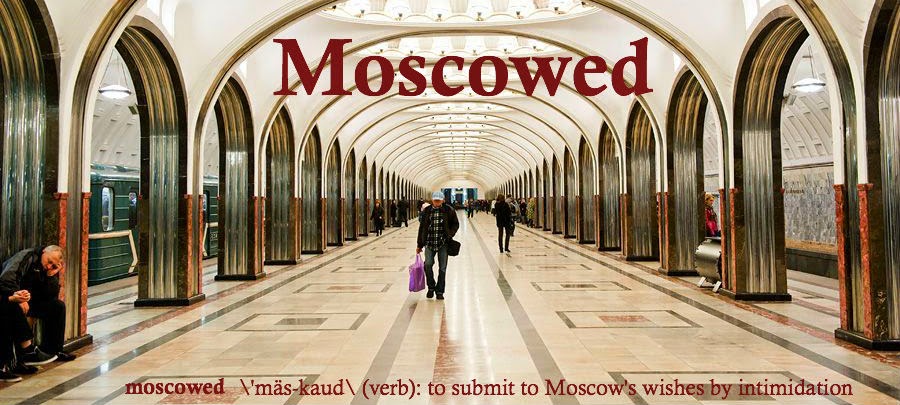I leave Moscow for good in just under three weeks. It’s a strange feeling to know that this is the end of my two years in Russia and that I don’t know if or when I’ll return. Even though I’ve said goodbye to many cities and many people over the years, I suspect there will be tears when I depart.
I’ve been going for morning runs along the Moscow River lately, and one day last week I decided to pause on the Pushkinsky Pedestrian Bridge to savor a breathtaking view of the city (I’m also out of shape and was winded from the stairs, if I’m being perfectly honest). The Cathedral of Christ the Saviour was dead ahead, Gorky Park unfolded to my right, and somewhere in the middle distance I could just make out the old Red October chocolate factory.
The latter two landmarks are nothing like they were when I first came to Russia in 2005. Gorky Park went from a rundown amusement park that no one wanted to visit to the most lavish park I’ve ever seen, replete with ponds, paths, gardens, skating rinks, restaurants, and more. Meanwhile, the Soviet version of Willy Wonka’s chocolate factory has since been pushed out of the city center. The red brick buildings housed conveyor belts of rich Russian chocolate when I visited them a decade ago, but the space has now been converted to hipster bars and luxury loft apartments. I know this is a natural part of development, and I love to imbibe at Strelka as much as the next person, but it’s still startling to see how much things have changed in just ten years.
Russia was rougher around the edges a decade ago. You would consider yourself lucky if a bathroom had toilet paper, much less toilet seats. There were no taxis to get you home after the metro closed, and I hopped into cars with strangers who didn’t always drop me off in the right place. Now I have succumbed to the iPhone revolution and Yandex.Taxi, but it’s taken all the fun (and fear of being killed) out of life. English signs have sprung up in the metro and in the streets, and waiters invariably assume I want an English-language menu as soon as they hear my accent. What I want is for Moscow to stop changing before it loses all of its charm.
I know I sound like a babushka with Soviet nostalgia, but Moscow has changed so much and so fast that I wonder if I will even recognize it when we meet again. When that thought occurred to me from my vantage point above the Moscow River, my first instinct was to weep. But then I remembered that Moscow Does Not Believe in Tears. If I have learned anything from my time in Russia, it is that Russians always remain stoic—even in the face of revolution, war, or total economic collapse. This is what I’m going to remind myself every time I get emotional over the next three weeks. And if that fails, I don’t think the Russians would fault me if I turned to vodka for support.
I’ve been going for morning runs along the Moscow River lately, and one day last week I decided to pause on the Pushkinsky Pedestrian Bridge to savor a breathtaking view of the city (I’m also out of shape and was winded from the stairs, if I’m being perfectly honest). The Cathedral of Christ the Saviour was dead ahead, Gorky Park unfolded to my right, and somewhere in the middle distance I could just make out the old Red October chocolate factory.
The latter two landmarks are nothing like they were when I first came to Russia in 2005. Gorky Park went from a rundown amusement park that no one wanted to visit to the most lavish park I’ve ever seen, replete with ponds, paths, gardens, skating rinks, restaurants, and more. Meanwhile, the Soviet version of Willy Wonka’s chocolate factory has since been pushed out of the city center. The red brick buildings housed conveyor belts of rich Russian chocolate when I visited them a decade ago, but the space has now been converted to hipster bars and luxury loft apartments. I know this is a natural part of development, and I love to imbibe at Strelka as much as the next person, but it’s still startling to see how much things have changed in just ten years.
Russia was rougher around the edges a decade ago. You would consider yourself lucky if a bathroom had toilet paper, much less toilet seats. There were no taxis to get you home after the metro closed, and I hopped into cars with strangers who didn’t always drop me off in the right place. Now I have succumbed to the iPhone revolution and Yandex.Taxi, but it’s taken all the fun (and fear of being killed) out of life. English signs have sprung up in the metro and in the streets, and waiters invariably assume I want an English-language menu as soon as they hear my accent. What I want is for Moscow to stop changing before it loses all of its charm.
I know I sound like a babushka with Soviet nostalgia, but Moscow has changed so much and so fast that I wonder if I will even recognize it when we meet again. When that thought occurred to me from my vantage point above the Moscow River, my first instinct was to weep. But then I remembered that Moscow Does Not Believe in Tears. If I have learned anything from my time in Russia, it is that Russians always remain stoic—even in the face of revolution, war, or total economic collapse. This is what I’m going to remind myself every time I get emotional over the next three weeks. And if that fails, I don’t think the Russians would fault me if I turned to vodka for support.

